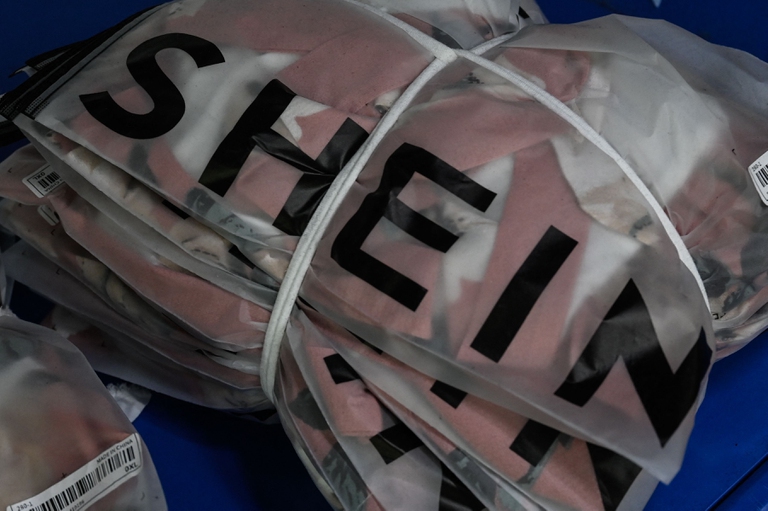https://www.lifegate.it/la-francia-vuole-tassare-il-fast-fashion
- |
- France is ready to tax fast fashion brands with a surcharge that can reach up to 10 euros per item.
- The bill, which consists of three articles, was presented by a parliamentarian from the center-right Horizons et apparentés party and was approved by the National Assembly:now all that is needed is the approval of the Senate.
- This law is part of a series of French initiatives aimed at protecting the environment, but also to protect the national textile and fashion sector from the pressure of large foreign groups.
The advent of fast fashion, 20 years ago now, changed the world of fashion and today we can calmly say it, it did so for the worse, drugging the market with low-cost clothes.This has resulted in two major changes in the industry:the first is that consumers have become accustomed to pay very little for clothes determining in a proportional manner one of the major cancers of textiles, namely the overproduction.The second is that it has also led pret a porter brands to follow the frenetic pace of product releases, resulting in the release of more and more capsule collections, collaborations between brands and intermediate collections, triggering a spiral of infinite production.
The very low price to which fast fashion brands have accustomed us has as a direct consequence the fact that for twenty years now we have been buying much more because the prices of fast fashion or ultra fast fashion clothes are negligible.But a low price, we now know, implies poor quality but above all dark scenarios exploitation.We will never tire of repeating it:if a t-shirt costs five euros it means that whoever worked on the packaging of that garment was paid very little.
France is preparing to tax fast fashion
Since the price is the focal point of everything, France has decided to give a concrete signal, approving theNational Assembly the law proposed by parliamentarian Anne-Cécile Violando, to impose a surcharge to sellers of fast fashion where, with this category, we mean those who offer "low-cost, often remote and delocalized textile production", but who clearly also sell in France.The proposal, which is yet to be approved by the Senate to become effective, it is structured according to a progressive surcharge method, where the additional cost can reach up to 10 euros for a single item, but it is not the only measure contained in the bill, which is made up of three articles.The first establishes that all e-commerce sites that sell fast fashion clothes and accessories insert warning messages about the price next to the price.environmental impact of the product you are putting in your cart and others that instead have the objective of encouraging reuse and repair rather than purchasing a new product.

The second article instead introduces the actual tax and which is based on principle of responsibility extended producer responsibility (EPR) which extends the producer's responsibility to the entire life cycle of the product and which therefore also includes the pollution resulting from its production and disposal.The amount to be added to the base price will therefore depend on theenvironmental impact, calculated starting from an estimate of carbon emissions.The last article of the bill in question instead, limit advertising of fast and ultra fast fashion items:one of the brands explicitly mentioned in the bill is in fact Shein, a Chinese brand with frenetic production that was at the center of an in-depth investigation by the British newspaper Channel 4 which shed light on the terrible conditions of its workers.
Ultra fast fashion brands like Shein And Temu they put on the market more than 6 thousand new products every day, an enormity and an absurdity that French law explicitly points out in reporting that the company "offers 900 times more products than a traditional French retailer".Precisely to raise awareness on this issue and on new ultra fast fashion brands, the French politician last month Antoine Vermorel-Marques posted a video on TikTok promoting the law, in the style of a video by unboxing using Shein packaging, to raise awareness of the chemicals associated with the production of this type of brand.
The proposal comes in addition to French laws that also aim to directly address the problem of textile waste, including the longstanding extended producer responsibility law, the Agec law which promotes the circular economy and waste reduction, together with the waste directive diligence regarding corporate sustainability, better known as Csddd, which is awaiting the final vote of the European Commission.
Even in the United States, laws are emerging that seek to clean up the fashion industry, where the California garment worker protection act became law in 2022 and the New York Fashion Act and the Fabric Act they are trying to get approval from the legislature.According to some industry observers, this bill represents the government's attempt to protect the fashion and textile sector national, increasingly under pressure from the fast fashion giants, a positive aspect of the law in question, however, certainly concerns the revenues obtained from the sanctions, which will be used to implement the treatment and collection of textile waste, but also initiatives linked to circularity and to research and development.
